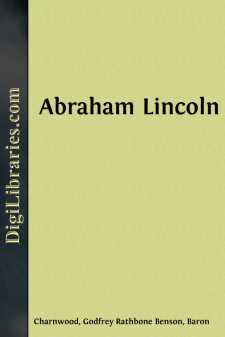Categories
- Antiques & Collectibles 13
- Architecture 36
- Art 48
- Bibles 22
- Biography & Autobiography 816
- Body, Mind & Spirit 145
- Business & Economics 28
- Children's Books 18
- Children's Fiction 14
- Computers 4
- Cooking 94
- Crafts & Hobbies 4
- Drama 346
- Education 58
- Family & Relationships 59
- Fiction 11834
- Foreign Language Study 3
- Games 19
- Gardening 17
- Health & Fitness 34
- History 1378
- House & Home 1
- Humor 147
- Juvenile Fiction 1873
- Juvenile Nonfiction 202
- Language Arts & Disciplines 89
- Law 16
- Literary Collections 686
- Literary Criticism 179
- Mathematics 13
- Medical 41
- Music 40
- Nature 179
- Non-Classifiable 1768
- Performing Arts 7
- Periodicals 1453
- Philosophy 66
- Photography 2
- Poetry 897
- Political Science 203
- Psychology 45
- Reference 154
- Religion 516
- Science 126
- Self-Help 86
- Social Science 82
- Sports & Recreation 34
- Study Aids 3
- Technology & Engineering 59
- Transportation 23
- Travel 463
- True Crime 29
Our website is made possible by displaying online advertisements to our visitors.
Please consider supporting us by disabling your ad blocker.
Leaves from a Field Note-Book
Categories:
Description:
Excerpt
I
I
It had gone eight bells on the s.s. G——. The decks had been washed down with the hosepipe and the men paraded for the morning's inspection. The O.C. had scanned them with a roving eye, till catching sight of an orderly two files from the left he had begged him, almost as a personal favour, to get his hair cut. To an untutored mind the orderly's hair was about one-eighth of an inch in length, but the O.C. was inflexible. He was a colonel in that smartest of all medical services, the I.M.S., whose members combine the extensive knowledge of the general practitioner with the peculiar secrets of the Army surgeon, and he was fastidious. Then he said "Dismiss," and they went their appointed ways. The Indian cooks were boiling dhal and rice in the galley; the bakers were squatting on their haunches on the lower deck, making chupattis—they were screened against the inclemency of the weather by a tarpaulin—and they patted the leathery cakes with persuasive slaps as a dairymaid pats butter. Low-caste sweepers glided like shadows to and fro. Suddenly some one crossed the gangway and the sentry stiffened and presented arms. The O.C. looked down from the upper deck and saw a lithe, sinewy little figure with white moustaches and "imperial"; the eyes were of a piercing steel-blue. The figure was clad in a general's field-service uniform, and on his shoulder-straps were the insignia of a field-marshal. The colonel stared for a moment, then ran hastily down the ladder and saluted.
Together they passed down the companion-ladder. At the foot of it they encountered a Bengali orderly, who made a profound obeisance.
"Shiva Lal," said the O.C., "I ordered the portholes to be kept unfastened and the doors in the bulkheads left open. This morning I found them shut. Why was this?"
"Sahib, at eight o'clock I found them open."
"It was at eight o'clock," said the colonel sternly, "that I found them shut."
The Bengali spread out his hands in deprecation. "If the sahib says so it must be so," he pleaded, adding with truly Oriental irrelevancy, "I am a poor man and have many children." It is as useless to argue with an Indian orderly as it is to try conclusions with a woman.
"Let it not occur again," said the colonel shortly, and with an apology to his guest they passed on.
They paused in front of a cabin. Over the door was the legend "Pathans, No. 1." The door was shut fast. The colonel was annoyed. He opened the door, and four tall figures, with strongly Semitic features and bearded like the pard, stood up and saluted. The colonel made a mental note of the closed door; he looked at the porthole—it was also closed. The Pathan loves a good "fug," especially in a European winter, and the colonel had had trouble with his patients about ventilation. A kind of guerilla warfare, conducted with much plausibility and perfect politeness, had been going on for some days between him and the Pathans. The Pathans complained of the cold, the colonel of the atmosphere....












